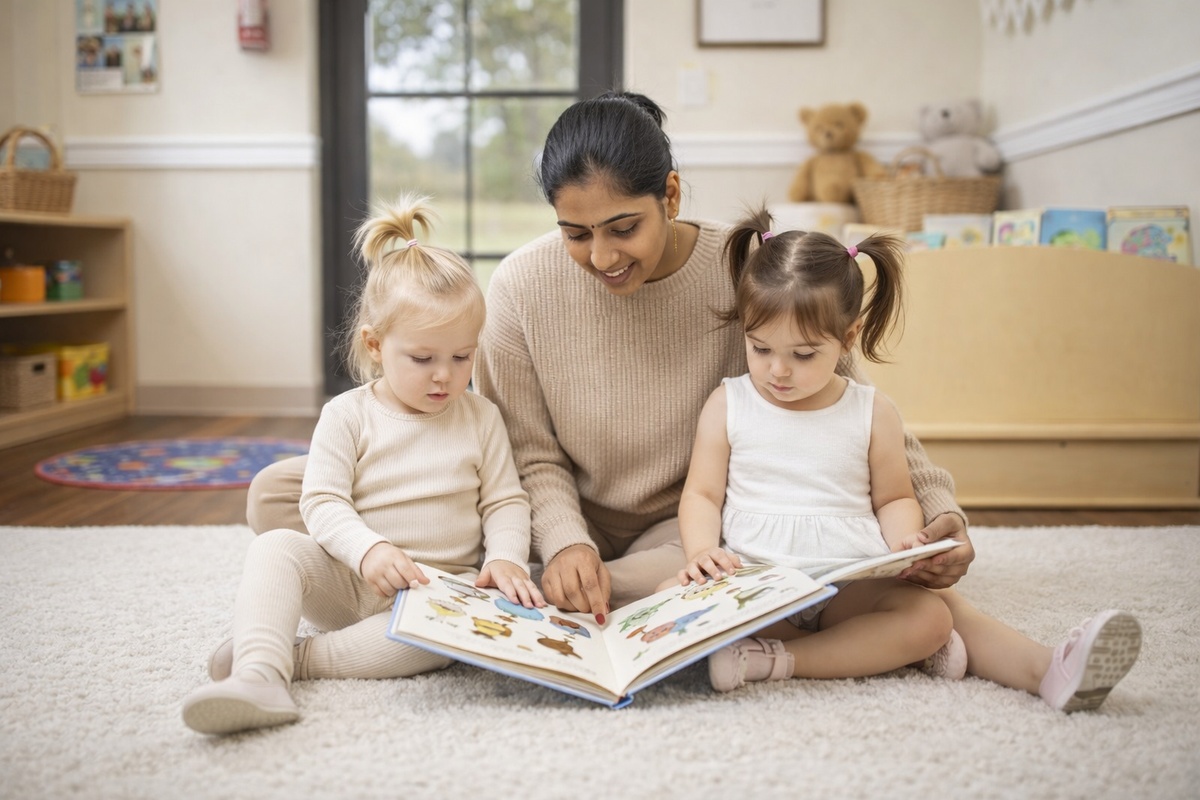Autism and Sleep: How to Improve Sleep Patterns in Children with ASD
Discover the connection between autism and sleep. Learn simple strategies to improve sleep patterns for children with Autism Spectrum Disorder (ASD).

For many parents of children with Autism Spectrum Disorder (ASD), sleep can feel like a never-ending struggle. When bedtime turns into hours of tossing, turning, and middle-of-the-night wake-ups, it's hard not to feel helpless.
But here's the important thing to remember:
You’re not alone — and better sleep is possible.
At Early Autism Services, we work with families every day to help children (especially ages 1-10) build healthier habits — including better sleep. Let's explore why sleep issues happen and what simple steps you can take to support your child’s restful nights. Learn more about our autism therapy services designed to support children and caregivers.
Why Sleep Can Be Challenging for Children with Autism
Most kids love routines, but for children with autism, predictability is even more important. Changes in the environment, noises, textures — even the way pajamas feel — can make falling asleep really hard.
Many children on the spectrum experience:
- Difficulty falling asleep
- Waking up several times during the night
- Early morning wakefulness
- Bedtime resistance
- Insomnia and sometimes sleep apnea
How Lack of Sleep Affects Children (and Parents Too)
When kids don’t get enough sleep, it’s not just about feeling tired.
Poor sleep can lead to:
- Heightened anxiety
- Struggles with attention and learning
- Increased emotional outbursts
- Repetitive behaviors becoming more intense
And for parents? It can mean exhaustion, stress, and less time for yourself or other family members. That’s why improving sleep is one of the most important gifts you can give your child and your whole family.
Read more about helping your child manage their emotions through practical strategies.
Practical Tips to Improve Sleep Patterns
Here are 8 real-world strategies parents have used to help their children with autism enjoy more peaceful nights:
1. Quiet the Environment
After dinner time, try to reduce household noise. Turn off TVs, limit loud conversations, and skip running noisy appliances like dishwashers or washing machines at night.
2. Dim the Lights
Children with autism can be extra sensitive to light. Use blackout curtains, nightlights with a red glow (less disruptive than white or blue), and dim bedroom lighting in the evening to encourage natural melatonin production.
3. Set the Room Temperature
Experts suggest keeping the bedroom slightly cool, between 65° to 67°F. A cooler room can help trigger sleepiness naturally.
4. Choose Sensory-Friendly Sleepwear
Scratchy tags, rough fabrics, or tight clothes can disturb a child’s sleep. Soft, breathable pajamas and cozy blankets can make bedtime more inviting.
5. Stick to a Calming Bedtime Routine
Repeating a predictable pattern each night, like taking a warm bath, brushing teeth, reading a quiet story helps signal to your child that it's time for sleep.
Maintaining routines can be especially helpful during special occasions. Here are tips on enjoying the holidays with your child while keeping consistency in place.
Tip: Use visual cues like a picture chart to show each step of the bedtime routine!
6. Create a Special Bedtime Story
A social story about going to sleep can make the bedtime process easier to understand and less stressful. Keep it simple and positive — focus on feeling safe, cozy, and rested.
7. Relax the Mind and Body
Adding relaxation techniques like deep breathing ("smell the flower, blow out the candle") or soft, slow music before bed can ease your child into a calmer state.
8. Gently Encourage Independent Sleeping
If your child relies on you being in the room to fall asleep, try slowly increasing the distance each night. Start by sitting next to the bed, then across the room, and eventually outside the door.
This method, done gently over days or weeks, can help children learn to self-soothe and fall back asleep during night wakings.
How Much Sleep Should Your Child Get?
Here’s a quick guide to healthy sleep ranges:
Getting enough rest helps your child’s brain develop, improves mood, and builds the foundation for better days.
Final Thoughts: You’re Not Alone in This
It’s okay if it feels overwhelming. Changing sleep habits doesn't happen overnight, it happens one small step at a time. At Early Autism Services, we’re here to support you and your child through every challenge, including better sleep. Because when your child sleeps well, everything learning, emotions, health, family time, starts to feel a little bit easier. If you’re ready to take the next step, schedule a free consultation with our team today.
Explore More

Daycare Challenges in Toddlers: When to Pause and Seek Support
Toddlers may struggle with daycare routines, transitions, and social interactions, which is often a normal part of development. However, when challenges are persistent or more intense than expected, they may signal the need for extra support. Paying attention to caregiver feedback and trusting parental instincts can help families decide when to pause and seek guidance. Early support fosters understanding, confidence, and emotional well-being.

How ABA Therapy Helps Children Navigate Transitions and Routine Changes
ABA therapy helps autistic children manage transitions by building flexibility through predictable routines, visual supports, gradual changes, and positive reinforcement. With preparation and family-centered strategies, transitions become less stressful, empowering children to regulate emotions, adapt to routine changes, and navigate daily life with greater confidence and stability.

Meaningful Gifts That Support Calm, Play & Learning for Children with Autism
This blog offers a thoughtful guide to sensory-friendly gifts and activities that support calm, play, and learning for children with autism. It highlights how understanding sensory preferences and choosing gentle, engaging tools can reduce overwhelm, encourage emotional regulation, and create joyful, meaningful play experiences at home.

